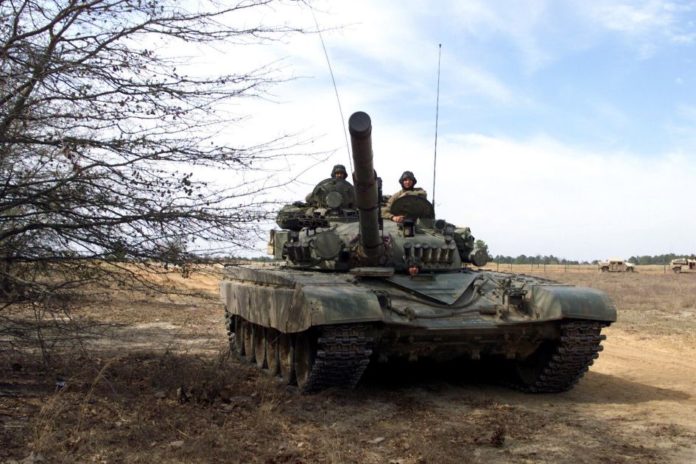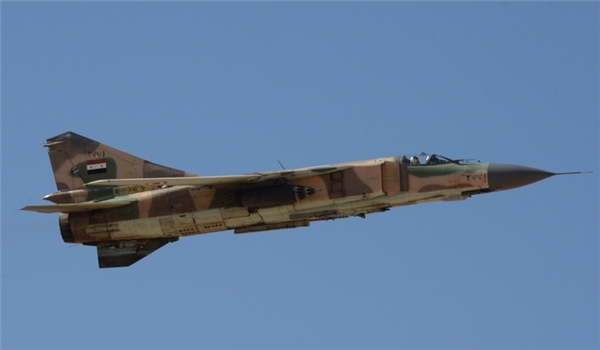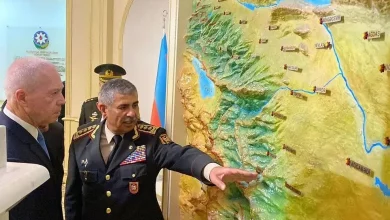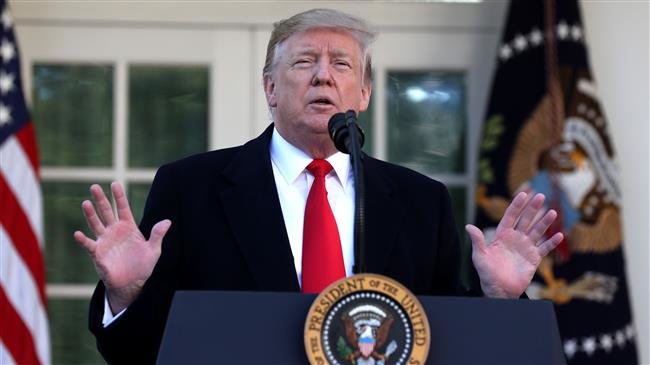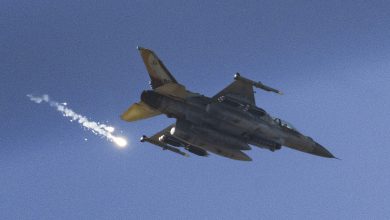Zionist regime forces advance further into Syrian territory, creating obstacles for UN peacekeeping personnel
Zionist military units have made significant progress further into southern Syria, following the advancement of ground forces deeper into the Syrian Golan Heights, thereby broadening their control in the region.
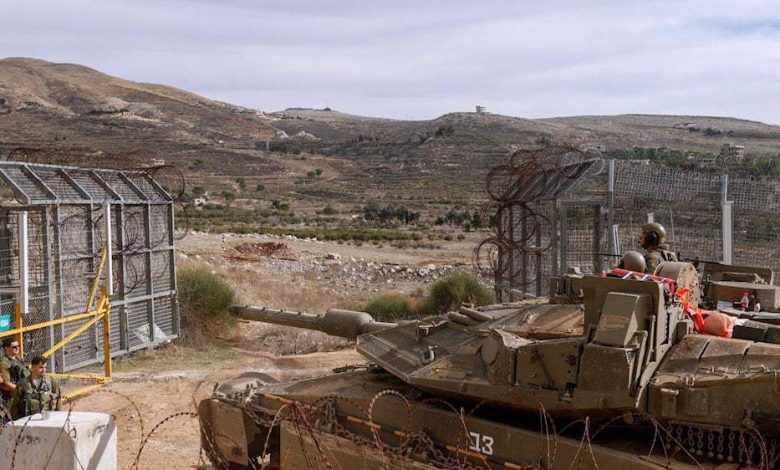
According to sources, Israeli military forces advanced into the town of al-Hurriya in Syria’s Quneitra province on Thursday. This move is part of an unprecedented military campaign against Syria in the aftermath of President Bashar al-Assad’s removal from power.
According to local sources, Israeli forces have reportedly undertaken a forced evacuation of residents from the village of Rasem al-Ruwadi in the area.
On Wednesday evening, Israeli military forces conducted operations in the towns of Ruwaihinah and Umm Batna, located in the central countryside of Quneitra.
Residents of the town have reported that occupying regime forces instructed them to vacate their homes, citing plans to incorporate these areas into designated “buffer zones.” The operation included the deployment of tanks and infantry units, during which numerous residences underwent searches.
Following statements by Israel’s Minister of Military Affairs, Israel Katz, the nation has announced plans to establish a “sterile defense zone” in southern Syria. This move is reported to contravene the 1974 disengagement agreement between Israel and Syria.
Community leaders and residents in Quneitra have firmly rejected evacuation orders, opting instead to stay in their homes despite ongoing Israeli advancements in the region.
Following the downfall of President Assad, Israeli forces have conducted nearly 500 airstrikes throughout Syria. These operations have primarily targeted key civilian and military infrastructures across the nation.
Multiple countries in the region have condemned Israeli actions, reiterating their commitment to safeguarding the sovereignty and territorial integrity of the Arab nation.
According to a United Nations source on Thursday, Israeli military forces have been hindering the operations of UN peacekeepers stationed in the occupied Golan Heights.
He stated that the Israeli military has relocated its forces to the region, substantially limiting the mobility of peacekeeping units and impeding their ability to carry out operational duties effectively.
Following the recent ousting of President Bashar al-Assad over the weekend, Israeli Prime Minister Benjamin Netanyahu declared the termination of the 1974 disengagement agreement with Syria.
He authorized the deployment of Israeli forces in the buffer zone of the Golan Heights, a region that delineates the occupied segment from the remainder of Syrian territory.
Israeli Prime Minister Benjamin Netanyahu reaffirmed that the Golan Heights, a territory captured by Israel during the 1967 conflict with Syria and subsequently occupied, would remain an integral part of Israel indefinitely. He expressed gratitude towards United States President-elect Donald Trump for his endorsement of Israel’s occupation of the region in 2019.
The United Nations, along with a significant majority of the international community, acknowledge the Golan Heights as Syrian territory.
The Israeli Prime Minister stated that he pledged on October 9, 2023, to “transform the landscape of the Middle East”.
Israeli forces have allegedly advanced 10 kilometers beyond the designated buffer zone, establishing positions in the town of Qatana, which is situated approximately 25 kilometers from Damascus, the capital of Syria.
Observers, including Syrians and international analysts, suggest that Prime Minister Benjamin Netanyahu is capitalizing on the rapidly evolving situation in Syria to secure additional territorial gains permanently.
Haid Haid, a senior consulting associate fellow at Chatham House, expressed skepticism to Middle East Eye regarding assurances of territorial returns. He pointed out that despite claims of restitution, the Golan Heights continues to be under occupation without being returned, casting doubt on future commitments.
Rime Allaf, a noted Syrian author and political analyst, took to X to criticize Israel’s conduct, describing it as “an unlawful and unethical invasion of additional territory and a usurpation of the Syrians’ entitlement to maintain their own military, which was dismantled by Israel immediately after the fall of the oppressive regime.”
Ameer Makhoul, a prominent Palestinian activist and writer, expressed concerns that Israel’s “blatant violations” are occurring with minimal response from the global community.
He asserts that the objective is to compel the new Syrian government to “acknowledge the reality imposed by an increased occupation, dismantling Syrian forces, and eroding its sovereignty.”
In a series of military operations, Israel has reportedly neutralized Syrian naval assets, including sea-to-sea missiles, helicopters, and aircraft. Among the targets were the entire fleet of MiG-29 fighter jets and significant ammunition depots, all of which were struck across at least five air bases.
The government has declared its intent to dismantle any resources that militant factions in Syria might use to launch attacks on Israel. However, according to Haid, prior to the Israeli airstrikes this week, Syria was already at a disadvantage and unlikely to successfully initiate an attack on Israel given the limitations of its current military infrastructure.
In light of Israel effectively dismantling any remaining strike capabilities, questions have arisen regarding the necessity for Israel to maintain positions within or beyond the demilitarized zone.
He highlighted reports indicating that Israel and militant factions in Syria have historically reached successful agreements. Under these arrangements, Israel supplied emergency assistance and medical care to militants on the condition that these groups refrained from launching attacks against the Zionist regime.
He stated that with militants and Takfiri groups dominating the situation, Syria finds itself in a position of vulnerability and defenselessness.
Haid stated that Syria currently faces a significant challenge, as the nation’s capacity to defend itself is compromised not only in the face of potential Israeli actions but also against various internal threats.
In a statement issued late Tuesday, Prime Minister Benjamin Netanyahu affirmed that Israel will refrain from intervening in Syria’s internal matters.
Certain analysts have expressed skepticism regarding his assurances, asserting that they believe Israel is not only attempting to secure land permanently but also aiming to obstruct the emergence of a stable Syrian state in the aftermath of Assad’s regime.
